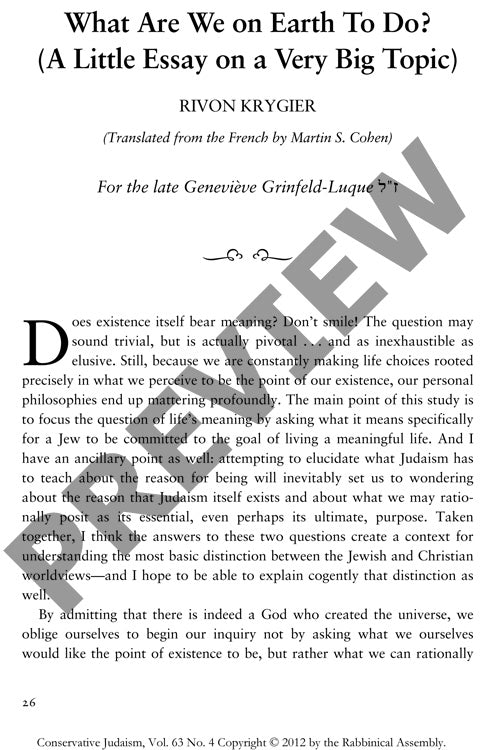What Are We on Earth to Do a Little Ess
Couldn't load pickup availability
Judaism envisions human purpose not as passive recipients of divine grace, but as active partners with God in completing creation - a radical theological perspective that emerges through close examination of classical Jewish sources. Through analysis of 18th-century kabbalist Moshe Chayyim Luzzatto's teachings alongside Talmudic, midrashic, and mystical texts, a distinct model of human dignity and divine-human partnership comes into focus. The research methodology employs detailed textual interpretation to uncover how autonomous moral action, particularly through performing commandments (mitzvot), serves as a vehicle for spiritual refinement and self-actualization. Charity (tzedakah) emerges as the supreme expression of divine imitation, allowing individuals to simultaneously grant dignity to others while achieving their own spiritual justification. This reciprocal relationship between human merit and divine love fundamentally distinguishes Jewish soteriology from Christian concepts of salvation through grace alone. The findings reveal a sophisticated theological anthropology where dignity-based love relationships form the foundation of Jewish existential philosophy, offering valuable insights for contemporary interfaith dialogue and our understanding of meaningful human existence.

More Information
-
Physical Description
-
Publication Information
Published
ISBN
-
Publication Credits
Rivon Krygier

